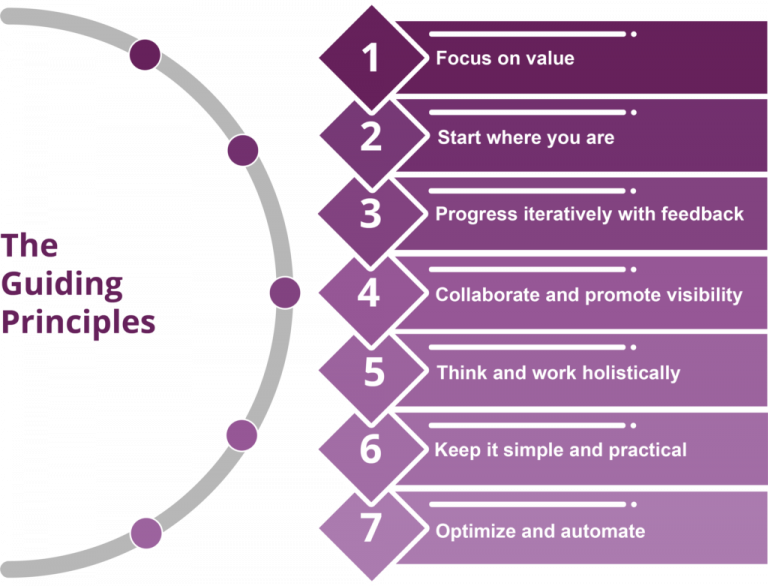The 7 guiding principles of ITIL 4 are as follows:
- Focus on value: The first guiding principle emphasizes the importance of understanding and delivering value to customers. All decisions and actions should be focused on creating value for the customer and meeting their needs.
- Start where you are: This principle recognizes that every organization is unique and has its own starting point. It encourages organizations to assess their current situation, capabilities, and resources before implementing any changes or improvements.
- Progress iteratively with feedback: This principle advocates for an iterative approach to service management. By continually assessing, testing, and improving services, organizations can better meet customer needs and adapt to changing business requirements.
- Collaborate and promote visibility: Collaboration is essential for effective service management. This principle encourages organizations to work together across departments, teams, and stakeholders to achieve common goals. It also emphasizes the importance of promoting visibility and transparency to ensure everyone has access to relevant information.
- Think and work holistically: This principle recognizes that services are complex and interconnected, and therefore requires a holistic approach. It encourages organizations to consider the entire service lifecycle, including all components and stakeholders, when designing, delivering, and improving services.
- Keep it simple and practical: Simplicity is key to effective service management. This principle encourages organizations to avoid unnecessary complexity and focus on practical solutions that are easy to understand and implement.
- Optimize and automate: The final guiding principle recognizes the importance of automation and optimization in service management. By automating repetitive tasks and continuously optimizing processes, organizations can increase efficiency, reduce costs, and improve service quality.

